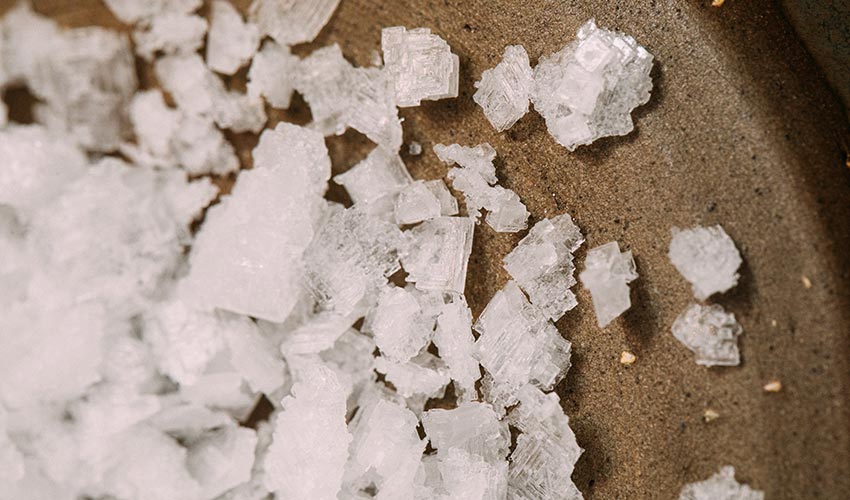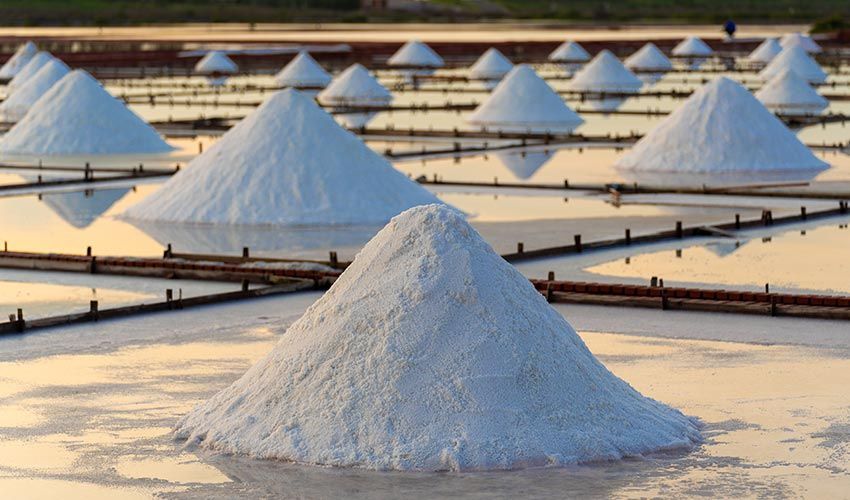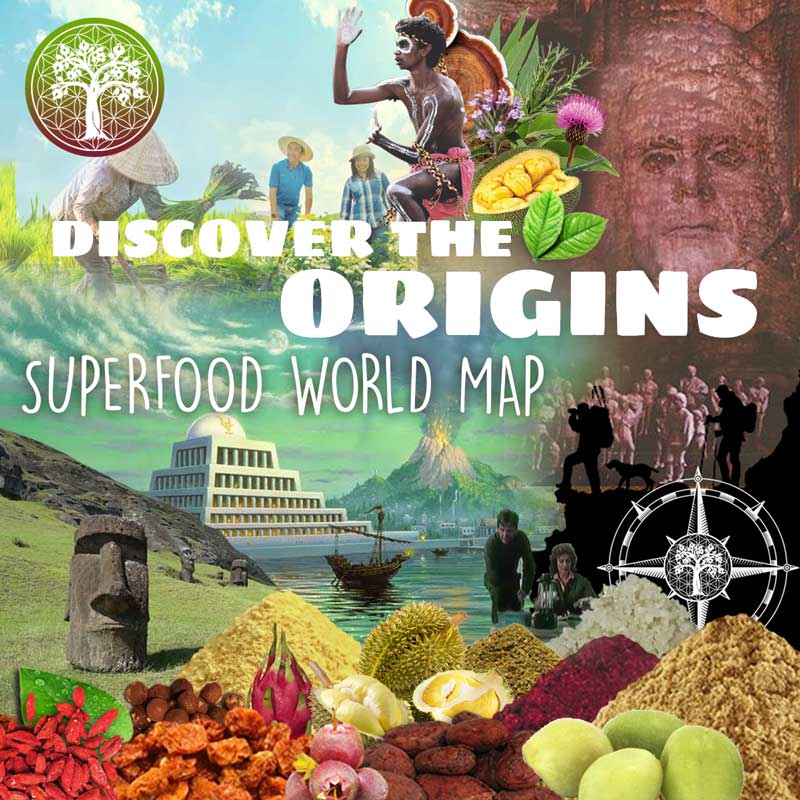Celtic Sea Salt - The Danger of a Low "Real" Salt Diet
In really rebalancing your health, there must be an intricate dance of Salt and Potassium. For years, salt has been condemned as a major culprit behind heart disease, kidney issues, and other chronic conditions. The prevailing medical advice advocates for reducing salt intake to safeguard health, but the truth is far from straightforward. Not all salts are created equal, and the body requires healthy salt for optimal functioning. Paradoxically, inadequate salt consumption may increase the risk of heart problems rather than reducing it.
The other key player in this intricate health equation is potassium, a naturally occurring mineral essential for the body's electrolyte balance. It plays a crucial role in maintaining overall well-being, and numerous studies demonstrate that achieving the right balance of potassium to sodium is more vital for health than merely reducing salt intake. The recommended potassium-to-sodium ratio is around 5:1, yet most Americans have it the other way around, consuming about two times more sodium than potassium. Instead of fixating on salt restriction, experts suggest that focusing on increasing potassium intake is the key to better health. Research has linked higher potassium consumption to lower blood pressure, irrespective of sodium intake.

Potassium-Powered Magic
Studies have shown that potassium-rich diets positively impact cardiovascular health. Consuming elevated levels of dietary potassium triggers a fascinating physiological response in the kidneys. These remarkable organs, consisting of millions of tiny tubes, redistribute fluids, allowing potassium to be secreted into the urine. This process reduces the reabsorption of sodium and water back into the body, signaling it to decrease retained sodium levels. This intricate regulatory mechanism maintains the balance of both minerals, effectively lowering blood pressure. Moreover, higher potassium intake and excretion have been found to slow the progression of kidney and heart diseases.
Type of Salt Matters
When considering salt options, it is crucial to recognise the disparities between various types. Processed salt, prevalent in Western diets due to processed foods, contains about 97.5% sodium chloride with minimal trace minerals. On the other hand, natural salts like Celtic Sea Salt and Himalayan Salt contain a more balanced composition, with around 84% sodium chloride and essential trace minerals.
Himalayan Salt, has always been the Salt of choice, however now more and more people are becoming aware of Celtic Sea Salt. From the pristine waters of coastal region of Brittany in France. Free from mincroplastics, Celtic Sea Salt is hand-harvested, preserving its natural minerals and trace elements that your body craves. It is also bursting with vital electrolytes like magnesium, potassium, and calcium, it rejuvenates your body and aids in maintaining proper fluid balance. Switching to natural salt can significantly improve the sodium-to-potassium ratio, contributing to better health outcomes.

The Dangers of Low-Salt Advice
Contrary to conventional advice, low sodium intake may have adverse effects on health. Low-salt diets have been associated with decreased serotonin breakdown, which can lead to harmful consequences. In contrast, excess serotonin, rather than dopamine deficiency, appears to be a significant contributor to conditions like Parkinson's disease. Experts argue that the reduction in salt intake, which started in the early 1900s, has coincided with the rise of high blood pressure, obesity, and diabetes. Your body's complex mechanisms work to maintain optimal sodium levels, and low-salt diets may trigger your body to pull sodium from your bones, leading to potential issues like osteoporosis. Moreover, low-salt diets may increase the risk of insulin resistance, a precursor to heart disease and many other chronic illnesses. In contrast, research suggests that maintaining a healthy sodium-to-potassium ratio through dietary monitoring may be a practical approach to achieving healthier blood pressure levels.
How Much Salt Do You Really Need?
Instead of blindly adhering to strict sodium intake guidelines, it's crucial to listen to your body's salt cravings and adjust your intake accordingly. Generally, a daily intake of approximately 3,500 mg of sodium is recommended, which exceeds the American Heart Association's suggestions. Studies have found that individuals with the lowest risk of heart problems consume three to six grams of sodium per day. If you're unsure about your sodium and potassium consumption, utilising nutrient tracking tools can be helpful in achieving a balanced ratio. However, keep in mind that your body possesses an innate "salt thermostat" that guides you in determining your individual salt requirements. Factors like sweating or certain medical conditions can influence your need for salt, so it's essential to pay attention to your body's signals.

How to Achieve Optimal Sodium-Potassium Balance
Rather than obsessing over salt reduction, a more effective approach to promoting health involves embracing whole, unprocessed foods that naturally offer a higher potassium-to-sodium ratio. By eliminating processed foods and focusing on organic and locally-grown options, you can ensure an abundant supply of potassium in your diet. Foods like Watermelon, Organic Fresh Orange juice and Oranges, Sweet Potatoes, Avocado, Bananas, Cantaloupe, and organic Yogurt are excellent sources of potassium. In the delicate dance between salt and potassium, the key to better health lies in achieving the right balance. Contrary to widespread beliefs, healthy salt is essential for the proper functioning of the body, and excessive salt restriction may have adverse consequences. Instead of fixating on reducing salt intake, prioritise increasing potassium consumption through a diet of wholesome, natural foods. By listening to your body and providing it with the necessary nutrients, you can embark on a journey towards optimal health and well-being.
So with a healthy diet and healthy salt in your life, you could notice significant changes. Of course Himalayan is good but I personally suggest Celtic Sea Salt. Also if you are living or from the West perhaps this Salt is more ancestrally for you. Celtic Sea Salt also possesses a unique pyramidal structure that lets it dissolve effortlessly on your tongue, this is another story, hydration hack and health booster. It was cherished by ancient Celtic tribes, and has been passed down through generations, preserving the art of seasoning and nourishment. Bid farewell to bland and ordinary salts and embrace the magic of Celtic Sea Salt.















